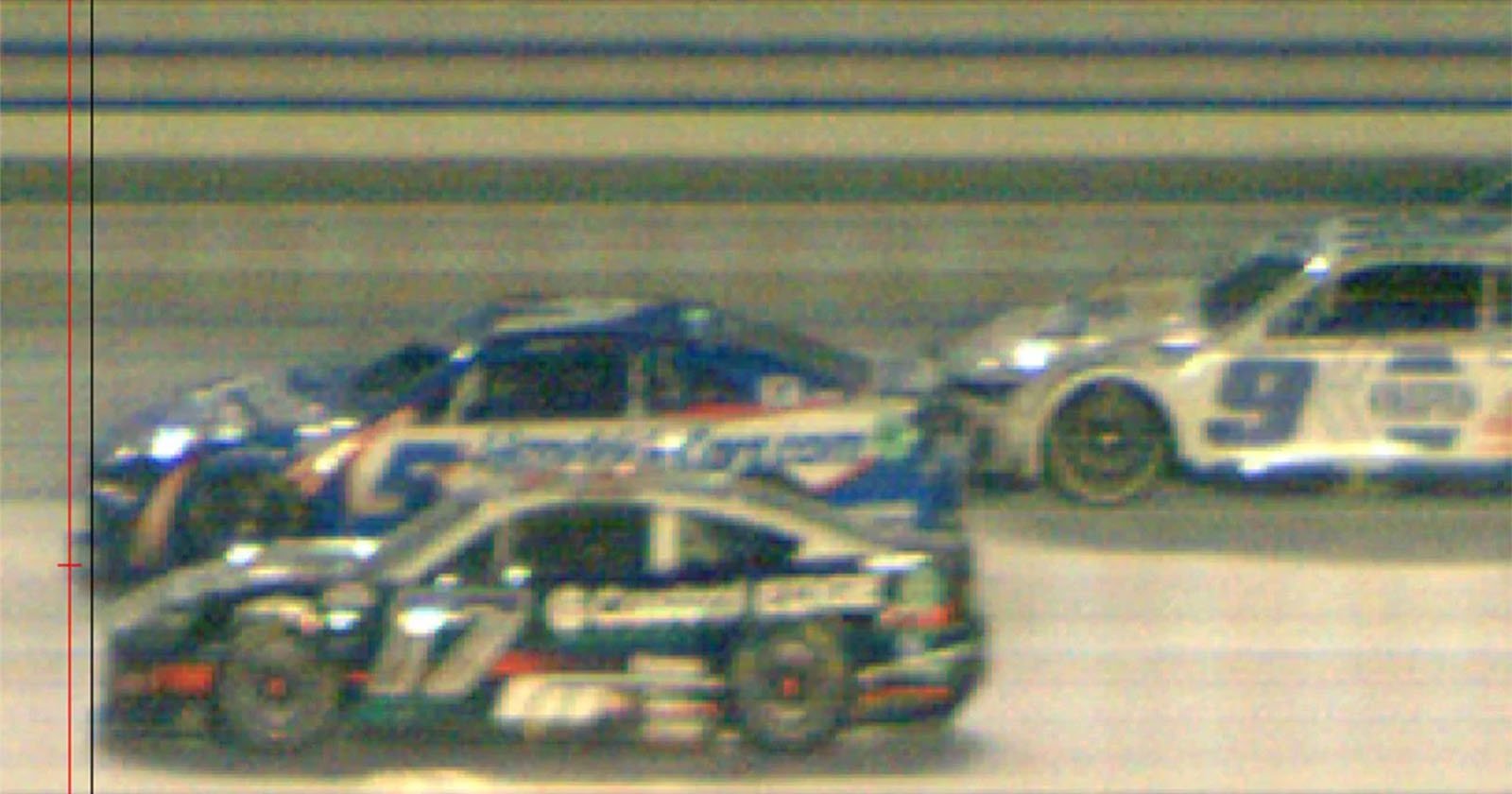![]()
So far, this NASCAR season has been one of slim margins and photo finishes. PetaPixel chatted with photographer Alex Slitz about his image of a three-way photo finish at Atlanta Motor Speedway in February, but last week’s race at Kansas Speedway was somehow even closer — with Kyle Larson winning by 0.001 second.
Even looking at an image of the “photo finish” doesn’t make picking a winner all that easy, although that is precisely how NASCAR officials determined that Larson (#5) bested Chris Buescher (#17). In a special edition of its ongoing video series, NASCAR Inside the Race, league officials break down NASCAR’s photo-finish technology, how the cameras have evolved over the years, and how the sophisticated cameras ensured that the correct driver was placed atop the podium.
It was the closest finish in NASCAR Cup Series history. Given that the average speed of all cars during the race is 126.5 miles per hour (203.6 kilometers per hour), the typical driver covers 211 feet (64 meters) in 0.001 seconds, Larson’s margin of victory.
Capturing such fine margins is a significant technical achievement in imaging. NASCAR uses the FinishLynx line-scan photo-finish camera and software system, which is also used in many athletic endeavors, including IndyCar, Formula1, MotoGP, professional cycling, and track and field.
The image of Larson winning the race is a composite of thousands of thin vertical pictures captured at the finish line rather than a single frame. When a car crosses a specific line, the camera system captures several thousand precise timestamped images. The camera is always on, and the capture process begins once motion is detected at a focus point. In the case of the 2024 AdventHealth 400 in Kansas, the capture started when the front splitter on Larson’s car broke the plane of the finish line.

The composite image is quickly assembled by the FinishLynx system and sent to NASCAR officials in the control tower, where real people make the final ruling using the image. The term “per the camera” pops up a lot in radio chatter, including in the video above, and the FinishLynx is the “camera” in question.
What made this photo finish especially thrilling was that the unofficial timing results showed that Buescher had won the race. The radio transponder system used for the timing charts has a razor-thin 1.5-millisecond margin of error, which only comes into play in the most extreme cases, and this finish is squarely in that category.
Unbelievable. 🤯 pic.twitter.com/YHWI3Jv1k0
— NASCAR (@NASCAR) May 6, 2024
The official image showing Larson having actually won is a bit grainy. That’s because the race start was delayed due to weather, pushing the finish into the night. The low-light conditions meant the FinishLynx camera had to pump up its ISO. Fortunately, the image wasn’t too noisy to tell who had rightly won the race.
“That sucks to be that close,” Buescher said after the race. “It was a great finish for us, a really strong day. A lot of speed in this Castrol Edge Ford Mustang, and we really needed that. Needed a win more, and I thought might have had that one.”
“You guys got your money’s worth today,” Larson exclaimed. “And I’m just proud to be a part of the show.”
When it comes to photo finishes in NASCAR, the camera is the final judge, and a mighty fine one, at that.
Image credits: NASCAR
